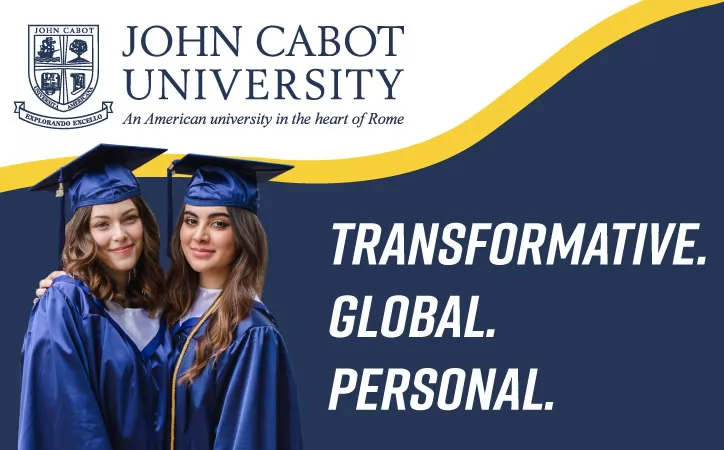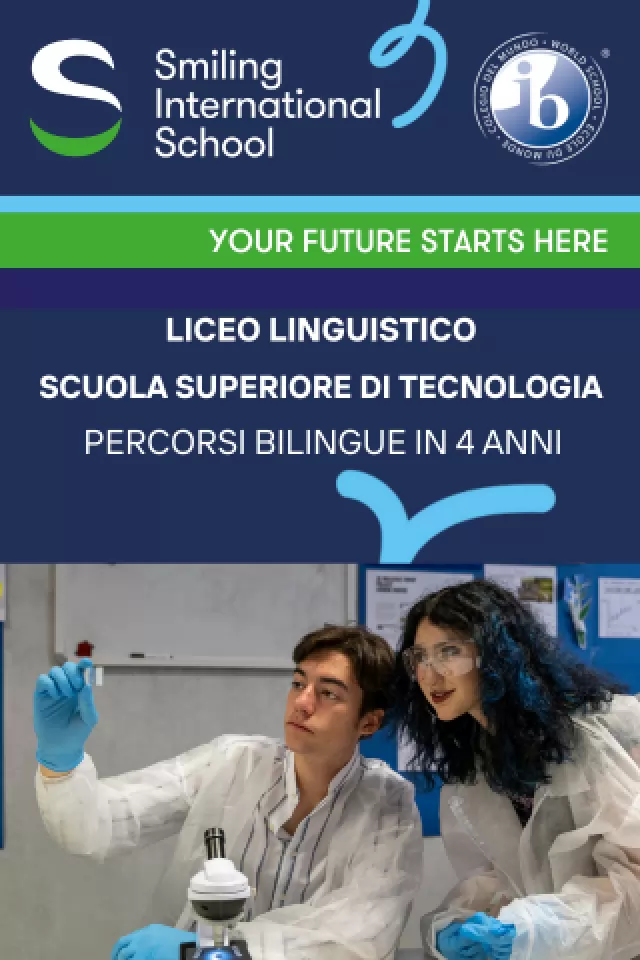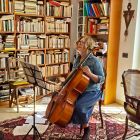Training to help the deaf.
As any student of Italian knows, sign language is second nature to the Italians. Why waste words when you can clearly express an emotion, a comment or make a suggestion with a hand movement? But in actual fact, sign language is more widespread among the hearing than among the deaf in Italy. When it comes to education for the deaf, sign language has been neglected, and research in the field has only come into its own over the past 20 years. Much of the progress that has been made is thanks to a small, American-run organisation based in Rome, the Mason Perkins Deafness Fund (MPDF).
Just over 20 years ago, an enthusiastic guest research fellow came from the United States to Rome to work on her thesis about Italian sign language. Elena Radutzky, an American of eastern European origin, accidentally walked into a deaf students meeting at university, and became hooked on sign language.
Radutzky came to Rome in 1980 on a Fulbright scholarship, a prestigious exchange programme between students from the United States and other countries. In 1984 she was approached by the Fleet Bank of Boston, which was looking after a trust fund left by an American philanthropist, Mason Perkins, for disadvantaged groups in Italy. The bank had heard that she worked in the field of deafness in Italy, and wanted to know if she could use its money to help underprivileged children in the country. It seemed to her that an extension of the Fulbright scholarship system for deaf students would be a worthwhile initiative. She applied for the trusts money and every year since 1985 MPDF has sent an Italian student to Gallaudet University in Washington DC, the only liberal arts higher education institute in the world exclusively for deaf people. The scholarship is administered by the Italian Fulbright Commision.
In Italy, the deaf were indeed a disadvantaged group. Defined as mentecatti furiosi, or raving maniacs, under ancient Roman law, this attitude prevailed far into the 16th century. Sign languages started to be codified and taught systematically in various countries in the 18th century (contrary to popular belief, there is still no single, globally-intelligible sign language), and for a while education for the deaf flourished in Italy. But in 1880 a division between the manual educators, who favoured sign language, and the oralist camp, which believed that deaf children should learn to lip-read and attempt speech, came to a head in the oralists favour. Sign language was excluded from education in most countries except the United States and Britain.
Sign language was therefore pretty much ignored in the Italian education system until the 1950s, and Radutzky, drawing on the American model for comparison, could see just how much education for the deaf had suffered as a result. Integration in Italian schools meant a single hearing-impaired child in a class, and a teacher with little or no specialist preparation. As a result, the main objective of the MPDF is to train educators to teach the deaf.
The scholarship to Gallaudet University is crucial for this. Students go to the United States for an academic year with the understanding that they will return to Italy and improve education for the deaf here, and the programmes alumni are involved in all of the countrys leading organisations in the field. The MPDF also helps researchers in education for the deaf come to Italy from the United States on Fulbright scholarships.
Apart from the scholarships, the MPDFs small but incredibly dedicated team also organises workshops and conferences for deaf teachers and interpreters. With the help of volunteers, the group produces teaching materials, published by the Italian Edizioni Kappa, and in 1992 brought out the very first Italian sign language dictionary. MPDF also provides consulting services for Italian schools and universities interested in offering Italian sign language courses, and counselling for the families of deaf and deaf-blind children.
Such counselling has been sorely lacking in Rome in the past, as Roberto Wirth can testify. When Wirth was born profoundly deaf to a Swiss family in Rome 54 years ago, his mother had to turn to the United States for expert advice. Profoundly deaf is the severest of four degrees of deafness, meaning a person cannot hear at volumes of over 85 decibels (a hairdryer ranges between about 75-90 decibels, while conversational speech 30 cm away is about 60 decibels).
Wirths family owns the luxurious Hotel Hassler in Rome; he was able to attend specialist and mainstream schools with the help of private tutors, going on to take over the family hotel. Wirth clearly enjoys his work, and is a keen businessman. Two years ago he opened the International Wine Academy in Piazza di Spagna, he recently developed a perfume under the Hassler logo, and he is president of the Piazza di Spagna street association, a powerful organisation that protects the interests of entrepreneurs in one of Romes wealthiest neighbourhoods.
The stately, commanding hotelier in his plush surroundings could not be more different from the diminutive, academic Radutzky, who precipitates from one funding crisis to the next. However, the two are nevertheless a winning team and have worked together for years. In 1993, together with his aunt Mercedes Bouman, Wirth set up a fund to allow a second student from Italy to attend Gallaudet every year, specifically to improve pre-school education for the deaf in Italy. A trust left by Bouman has allowed the project to continue after her death.
Wirth is thinking big for the future. I want to found a centre in Rome for education for the deaf. Parents with deaf children are often very confused; they ask for information but get conflicting advice. He wants to provide a support network for these families.
Radutzky is similarly optimistic that the MPDFs mission to improve the lot of deaf children is here to stay. We even have our own symbol in Italian sign language, she says and demonstrates: the letter m plus a digging motion to indicate the word foundation. If you have our own sign, you know youve made it.
Mason Perkins Deafness Fund, Via Nomentana 56,
tel. 0644234511, www.mpdf.it, www.robertowirthfund.it.





















